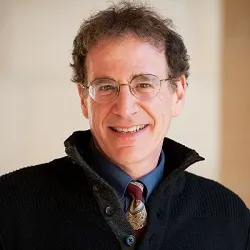
Why the Internet turns really smart people in circles, and what you and your kids can do about it
Event time listed in Pacific time zone.
What is it about the Internet that has created mass confusion, even among bright people who should know better? Why are we addressing a 21st century challenge with antiquated tools from the analog age?
Professor Sam Wineburg will share research conducted with professional fact checkers who cut through digital dross with lightning speed. This talk and Q&A will provide guests and their students with a handful of flexible tools to learn to read the Web like a fact checker and to avoid pitfalls from unreliable information on the Internet.
Learn more about Professor Wineburg’s work in The Wall St. Journal, TIME, USA Today, and The New York Times.
Get to know Professor Wineburg’s free Civic Online Reasoning curriculum to help students identify and analyze reliable resources.
About the Speaker
Sam Wineburg is the Margaret Jacks Professor of Education and, by courtesy, of History & American Studies at Stanford University. Educated at Brown and Berkeley, he holds a doctorate in Psychological Studies in Education from Stanford and an honorary doctorate from Sweden’s Umeå University. In 2004, Wineburg founded the Stanford History Education Group (sheg.stanford.edu), whose curriculum and assessments have been downloaded over nine million times, making it the largest provider of free curriculum in the social studies. His latest research focuses on “Civic Online Reasoning,” or how people judge the credibility of the Internet— research that has been reported in Time Magazine, BBC, The Wall Street Journal, The New York Times, Washington Post, NPR, PBS, and translated into dozens of languages.
Wineburg’s scholarship sits at the crossroads of three fields: cognitive psychology, history, and education, and his writing has appeared in such diverse outlets as Cognitive Science, Journal of American History, New York Times, Washington Post, USA Today, Time Magazine, and the Smithsonian Magazine. His 2002 book, Historical Thinking and Other Unnatural Acts: Charting the Future of Teaching the Past won the Frederic W. Ness Award from the Association of American Colleges and Universities for work that makes the most important contribution to the “improvement of Liberal Education and understanding the Liberal Arts.” In 2018, his research group entered into a partnership with the Poynter Institute and supported by Google.org to create a state-of-the-art curriculum on digital literacy, which has been distributed freely to schools throughout the world. His latest book, Why Learn History When It’s Already on Your Phone, was published by the University of Chicago Press in 2018.
